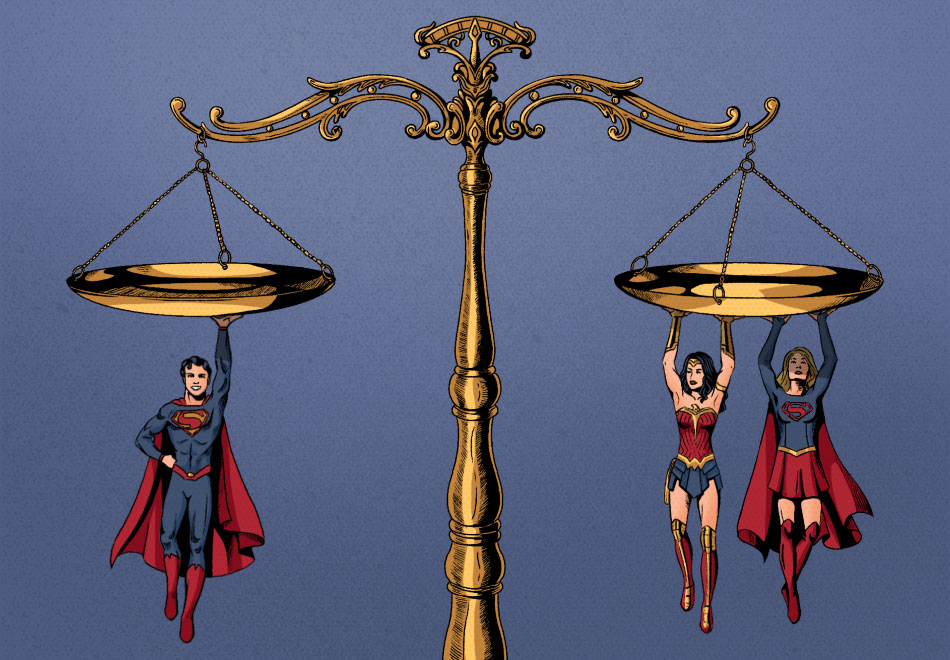Wonder Women | Hazlitt
The fight for female superheroes in Hollywood.
via Hazlitt: https://hazlitt.net/longreads/wonder-women
That would be Lynda Carter. In her starry trunks and scarlet bustier, both of which got skimpier as the seasons progressed, her Wonder Woman became the iconic female superhero. Despite the character’s activist origins, however, ABC didn’t take her particularly seriously. Wonder Woman was clearly satirical. It had a super cheesy theme song—“In your satin tights,/fighting for your rights”—used comic book-style speech bubbles, and its pièce de résistance was a ridiculous transformation involving a slow-mo beep-laden twirl. “Please, whatever you do, don’t ask me what I think of women’s lib,” Carter told Orange Coast Magazine two years in. “I’ve heard that question so many times I could scream.” It was a good way to avoid explaining why the first time we see Diana, she is running through a jungle in a gauzy pastel teddy and big hair like she’s in Valley of the Dolls. “There’s a reason it’s called jiggle TV,” says Cocca. “There’s a lot more running than you need to see.” Which is not to say Wonder Woman did not touch on feminism—it couldn’t really avoid it. “Any civilization that does not recognize the female is doomed to destruction,” Diana says in the pilot. “Women are the wave of the future and sisterhood is stronger than anything.” It’s just that she says it while torturing the woman beside her.
